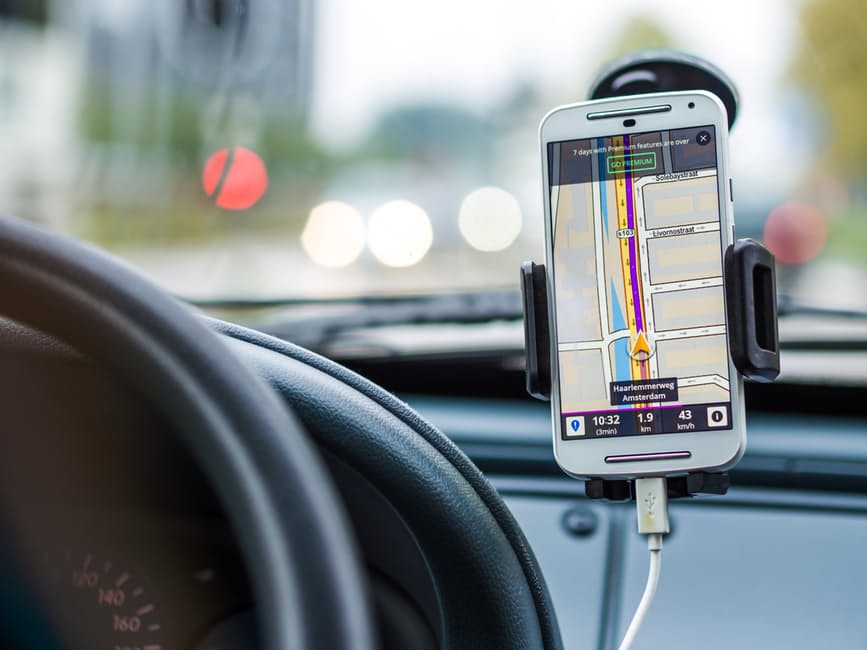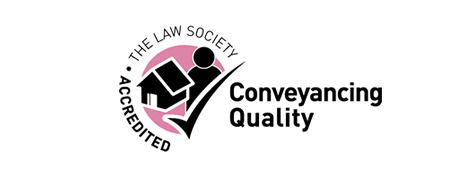Blog

Last week, people across America took part in national Unplugging Day providing a welcomed opportunity to disconnect from digital devices and reconnect with family, friends and loved ones. Perhaps something we could use in the UK following the latest headlines of the detrimental effects the internet is having on the young and the increasing worry and panic surrounding how to keep children safe online. Currently, not a day passes where the news isn’t bursting with horror stories over children’s safety whilst online. The BBC has reported shocking and harrowing statistics revealed by the NSPCC, showing that the number of children targeted for grooming and abuse on Instagram has more than tripled, with victims as young as five years old. Since the crime of sexual communication with a child came into force in 2017, a total of 5,161 crimes were recorded by the police. The NSPCC said Facebook, Instagram and Snapchat had been used in 70% of the 1,317 in cases in a six-month period where police had recorded the method used and has led the charity to brand the internet as the “Wild West Web”. If that wasn’t bad enough, there is also the latest online challenge aimed at children which, without any doubt, is particularly gruesome. In a bid not to give it anymore exposure, but to add some refrenece to this feature, here’s a very brief synopsis just in case you’ve missed it. The Momo Challenge purports to tell children to perform dangerous and violent tasks via social media videos and if they don’t comply or they tell anyone what they’ve seen, then a scary lady with big protruding eyes will hurt them or their loved ones. It has certainly caught the media’s attention and as a result has whipped parents, carers, guardians and society as a whole into a frenzy. Concerningly, and as with the nature of the social media beast, this has now gone viral. Reports are now surfacing that the Momo Challenge could actually be a hoax and that charities say there have been no reports of anybody receiving messages or harming themselves as a result and warning that media coverage has amplified a false scare story. Kat Tremlett, harmful content manager at the UK Safer Internet Centre, said: “Even though it’s done with best intentions, publicising this issue has only piqued curiosity among young people. It is a myth that is perpetuated into being some kind of reality. Even if this is a scaremongering tactic, what lessons can we learn from this? NSPCC chief executive Peter Wanless said: “These figures are overwhelming evidence that keeping children safe cannot be left to social networks. We cannot wait for the next tragedy before tech companies are made to act.” Keeping children safe online should be the responsibility of society as a whole. Everyone has a role to play, parents, teachers, social workers, carers and guardians alike all need to promote healthy use of the internet, not just the perils and pitfalls, but the advantages it can have for learning if used correctly. Katie Williams, Associate Solicitor, Family Department at Letchers said: “Whilst the latest headlines and figures are disturbing what it does provide is a great opportunity to talk to your children about what they are doing online. Try asking them about the sites they are viewing, what games they are playing and who they are talking too? Keeping up regular open and transparent conversations about a child’s use of the internet is one of the best ways to stay informed and keep abreast of their activities. “The internet can be a very dangerous place and in an ideal world all parents and carers will be able to amicably discuss arrangements for their children, however that is sadly not always the case. Try writing to each other rather than face to face as that reduces the chance of dispute or one person not having their concerns heard. If that doesn’t work you could try mediation.” At Letchers we have qualified mediators who can provide a safe and independent space to resolve conflict. Failing that we are able to look after your interests through any court proceedings which may be needed, always with the child’s best interests at heart. If you would like any assistance on any child or family related matter please call a member of our experience team on 01425 471 424 or email: mail@letchers.co.uk Disclaimer: Information on our website is published for general information only and represents our opinion on matters at the date of publication. It does not constitute legal advice and must not be treated as a substitute for it. For legal advice, contact us on 01425 471 424

Homelessness doesn’t discriminate. It’s not always about choice. It is not necessarily foreseen. It doesn’t have to be forever… It has been reported that there are over 320,000 people sleeping on the streets of Britain and according to the housing charity Shelter, this figure is likely to be underestimated.

As a society, children’s health, welfare and protection is paramount. In every aspect of life parents, guardians, local authorities, government, social workers and general practitioners all put safeguarding children at the top of the list. So why should social media giants be exempt from adhering to the same exacting standards? Startling figures from the Office of National Statistics (ONS) reveal that teenage suicides have almost doubled in eight years in England. Official figures set to be released in September 2019 will show that suicides are at more than five in 100,000 teenagers in England up from just over three in 100,000 in 2010. Furthermore, in 2017 the Organisation for Economic Co-operation and Development (OECD) undertook a study and found that British teenagers are among the unhappiest in the world. While they spend most of their time online, they are also more anxious about being bullied and going to school than their counterparts in other countries. With this in mind, the government is calling on social networks to do more to protect young people online and what content they are exposed too. Margot James, the digital minister, confirmed that the government would soon publish a white paper, followed by a period of consultation over the summer, setting out the options to regulate platforms such as Instagram and YouTube. In her speech delivered to a packed auditorium of young adults on Safer Internet Day she said: “Online safety is a top priority for the Government and we want to make the UK the safest place in the world to be online. We will soon be publishing an Online Harms White Paper which will set out clear expectations for companies to help keep their users, particularly children, safe online. “Internet companies have always enjoyed legal protection from liability for user generated content. This laissez faire environment has led some companies to pursue growth and profitability with little regard for the security and interests of their users. There is far too much bullying, abuse, misinformation and manipulation online as well as serious and organised crime online.” This move could also see executives of social media companies being held personally liable if content that is harmful to children is not removed. We are expecting to see an end to self-regulation for social media giants requiring them by law to remove harmful content or face fines. Given this medium of communication didn’t exist 20 years ago, it is clear why there is a current lack of legislation to govern social media giants who should have a moral duty of care to protect its users, especially the young. The debate is fuelled by the devasting effects social media has had on one young lady, Molly Russel who at the young age of 14, sadly committed suicide in November 2017. Molly’s father said she had taken her own life after looking at self-harming images on Instagram. Health experts across the board are realising and vocalising the detrimental effects upon children’s health from over exposure to social media, and despite parental efforts to safeguard their children online, it would seem a near impossible task with such a barrage of information, images and constant updates readily available. What may seem like an innocent and harmless ‘App’ can have so many hidden elements and ways for children to become exposed to inappropriate content. Take for example the craze sweeping the nation, ‘Fortnite’, a seemingly innocuous online gaming platform, but one which has made the headlines for all the wrong reasons. “Chilling Fortnite warning over paedophiles grooming children on the game as National Crime Agency urges parents to be vigilant.” – The Sun “Fortnite chat raises stranger danger fears from NSPCC” – BBC News “Fortnite warning as headteacher tells parents game is making children violent and aggressive” – The Telegraph Concluding her speech, Ms James said: “For too long the response from many of the large platforms has fallen short. There have been no fewer than fifteen voluntary codes of practice agreed with platforms since 2008. Where we are now is an absolute indictment of a system that has relied far too little on the rule of law. “The government is determined to act so that we can all enjoy the huge benefits of new technology, without our children, and other vulnerable individuals, being put at risk of serious harm.” It will be interesting to see how this story progresses and what new regulations the Government may introduce. Whatever the outcome, it would seem all sides do agree on something and that is that keeping children safe online is of absolute paramount. Letchers Solicitors are highly experienced in all matters of family law and the firm prides itself on having attracted very experienced lawyers from across the UK. Letchers has the ability to handle personal yet complex issues and these skills have been refined over its long and successful history. If you need any assistance with a legal matter you are facing or may arise in the future contact a member of the team on 01425 471 424. Disclaimer: Information on our website is published for general information only and represents our opinion on matters at the date of publication. It does not constitute legal advice and must not be treated as a substitute for it. For legal advice, contact us on 01425 471 424

Do you wish to leave your share of your property to loved ones in your will? This will only work if you co-own your property as a tenancy in common as opposed to a joint tenancy. Do I have a Joint Tenancy? This is where each co-owner of property is entitled to its entirety and not individual shares. If a joint tenant dies, their entire interest passes to the remaining joint tenants automatically. The last tenant becomes the sole and absolute owner. In essence, to a third party, joint tenants appear to be a single owner. So, you cannot leave property in your will if it is co-owned as a joint tenancy, as the principle of survivorship overrides your will. This is why it is important to know how you own your property and we can help you discover this. Do I have a Tenancy in Common? Here, each owner is entitled to an identifiable share of property which can be left to a third party in a will or indeed sold or gifted during their lifetime. A tenancy in common may arise where the language of a conveyance indicates that each co-owner holds distinct shares or when an existing joint tenancy is severed. We can assist you in creating a tenancy in common when purchasing property or in severing an existing joint tenancy. Should I sever? Joint tenancies are usually prevalent in couples and a severance may be advisable if your relationship is breaking down. This is because if you die, your former partner may leave their interest in the property to a new partner and/or children in their will. Similarly, if you are in a second marriage and you die, your own children may not benefit from your property under your surviving spouse’s will. Severance may also be advisable if you have contributed a considerable amount more to the purchase price of a property than other co-owners. However, it is important to note that severed shares are presumed to be equal unless there is an agreement otherwise. A tenancy in common may also be useful when obtaining care home funding. This is because only your share, as opposed to the entire value, is taken into account for local authority financial assessment determining contribution to care fees. There is no need for consent of other joint tenants for an individual co-owner to sever a joint tenancy and any joint tenant can sever at any time. If you are buying property and require advice, contact our Conveyancing Team or if you would like to draw up your will, contact our Private Client Team on 01425 471 424. Disclaimer: information on our website is published for general information only and represents our opinion on matters at the date of publication. It does not constitute legal advice and must not be treated as a substitute for it. For legal advice, contact us on 01425 471 424.

Penalties for using your mobile phone whilst driving or riding a motorcycle have increased to 6 points on your licence and a £200 fine. This means that new drivers who passed their driving test within the last 2 years will lose their licence and fully qualified drivers will be half way to a 6-month licence ban, if a further 6 points are accumulated within 3 years. You may also be liable for a maximum fine of £1,000 or £2,500 if you are driving a lorry or bus. Which devices am I not allowed to use? The term “mobile phone” may mean more than you think. The law applies to any device capable of communicating through mobile networks, Wi-Fi or Bluetooth, including but not limited to: smartphones, tablets and iPods. Whilst mobile phone use is illegal when driving or riding a motorcycle, the law still applies if you are stopped at traffic lights, queuing in traffic or supervising a learner driver. What is meant by mobile phone “use”? The word “use” includes, but is not limited to: telephone calling (including holding your phone out on loudspeaker), text messaging, watching videos, searching on the internet and posting on or scrolling through social media. Therefore, you should think twice before changing music tracks or volume, playing games and using maps on your mobile device. If you are simply holding your phone, even if you are not using it, it is illegal. What is allowed? You may only use your mobile phone if you are safely parked with the engine switched off or if you need to call 999 or 112 in an emergency and it is unsafe or impractical to stop. Otherwise, you may only use your device if it has hands-free access. You may use the following: A Bluetooth headset Voice command A dashboard holder Devices with such hands-free access may include: smart watches and other various voice-activated software. Satellite Navigation Systems are also permissible, providing it is mounted in a hands-free holder. Similarly, you can play music in your vehicle but only if mounted in a hands-free holder or connected by Bluetooth. However, in some circumstances, it is still forbidden to use your device even if your phone is mounted in a hands-free holder or connected to Bluetooth, for example, if you are scrolling through social media or searching the internet. You should be aware that you must still be in full control of the vehicle at all times when using hands-free. The police can stop you if they think this is not the case and you may be prosecuted. If you receive a summons to court in the post or are at risk of accumulating 12 points on your licence, contact our Crime Department for legal advice. Disclaimer: information on our website is published for general information only and represents our opinion on matters at the date of publication. It does not constitute legal advice and must not be treated as a substitute for it. For legal advice, contact us on 01425 471 424.









